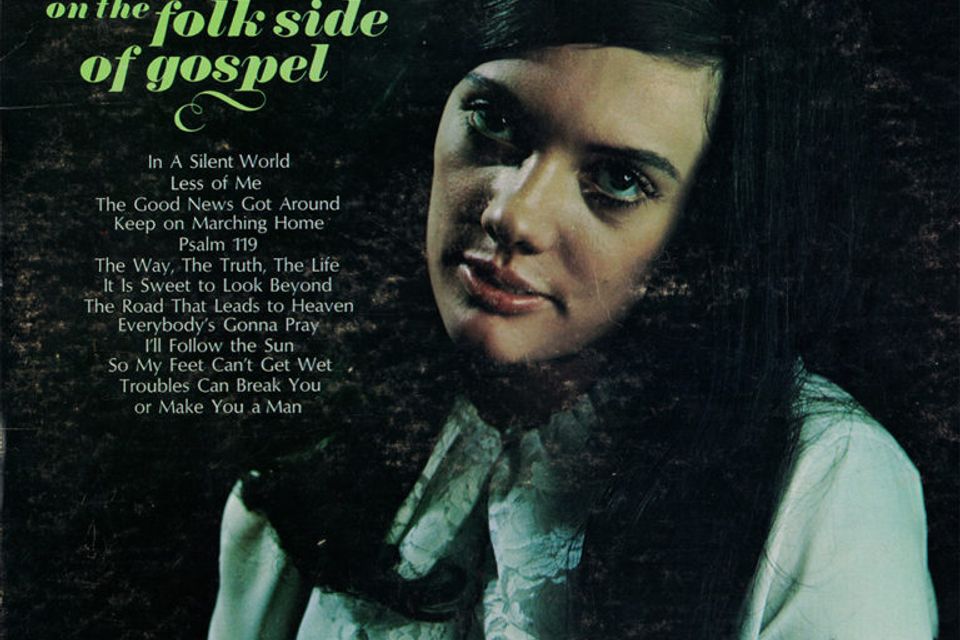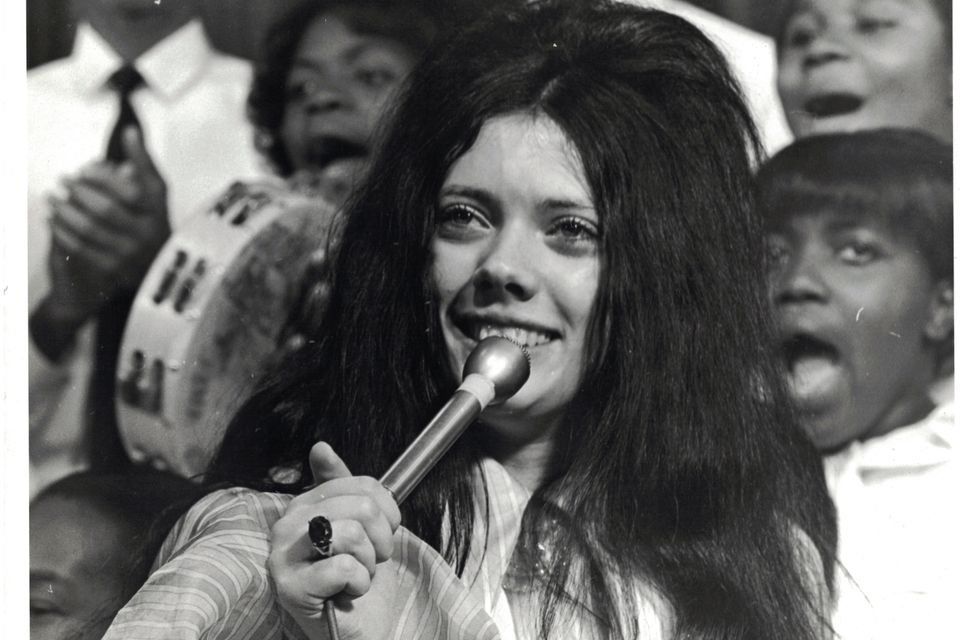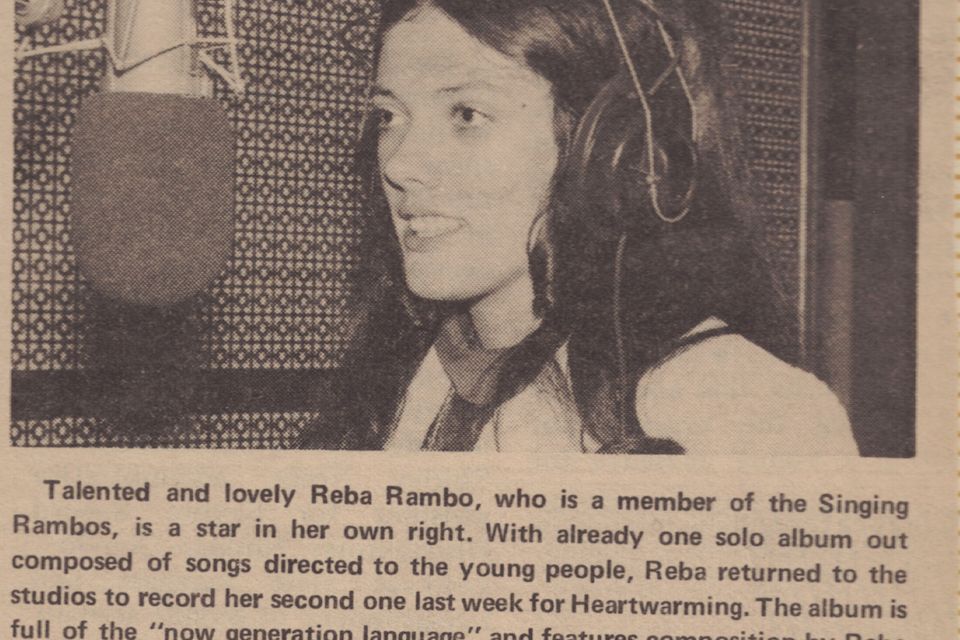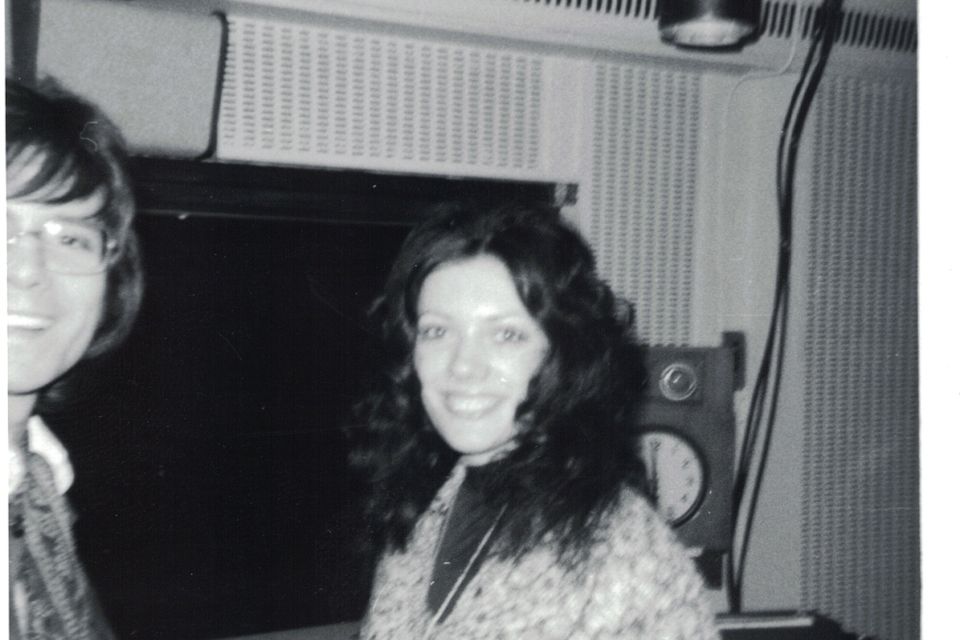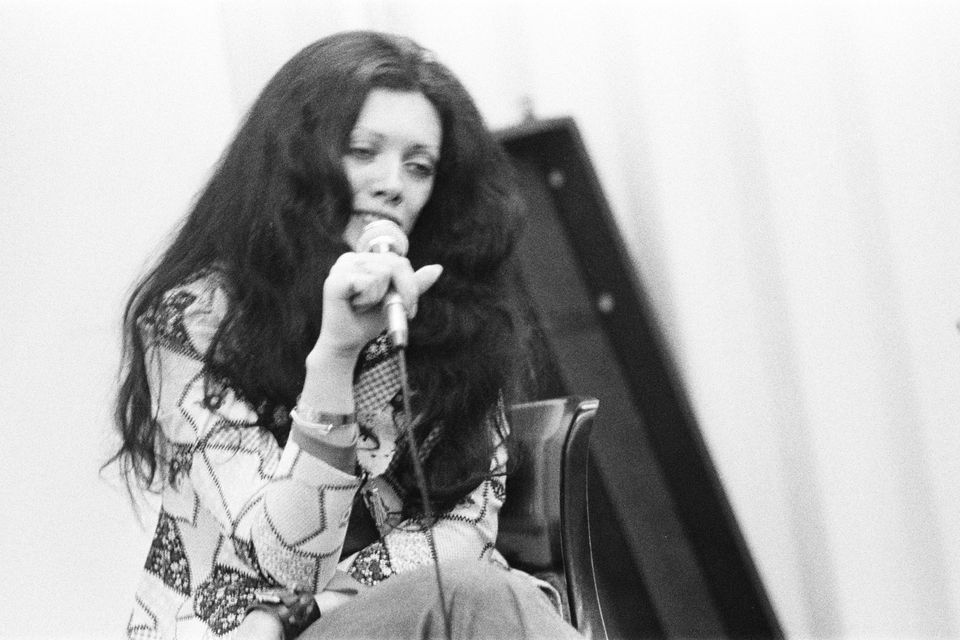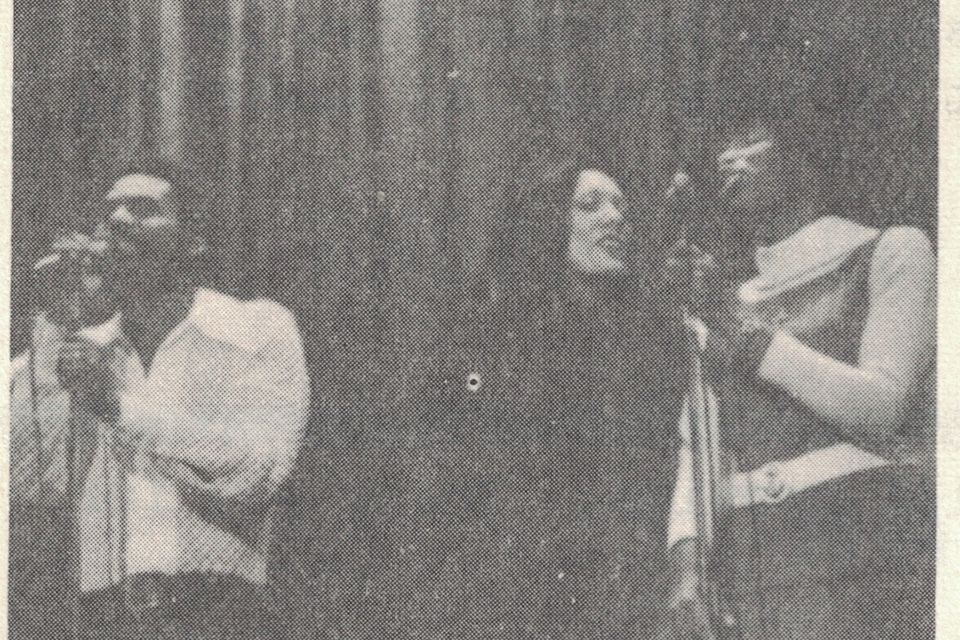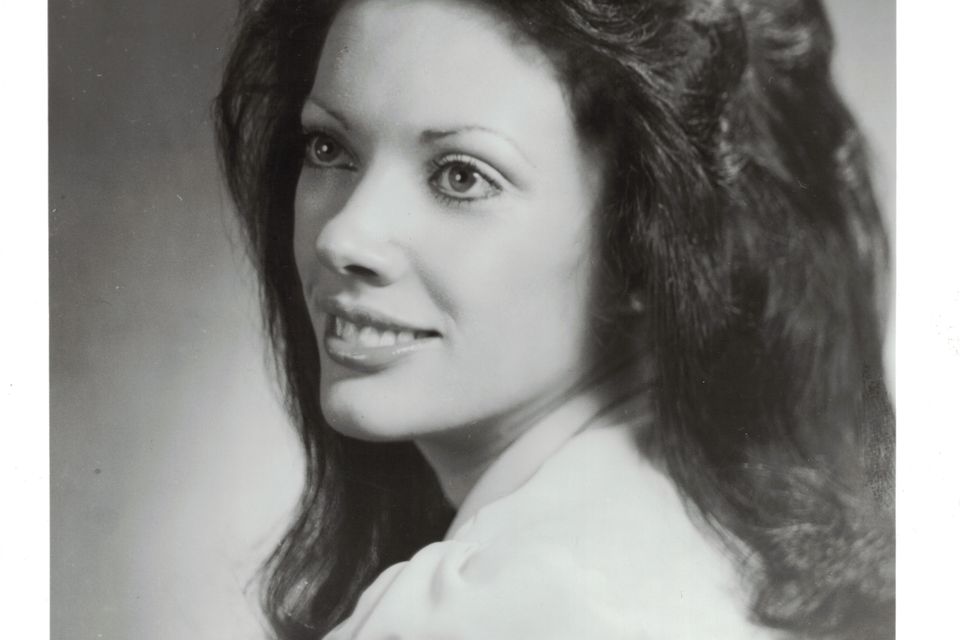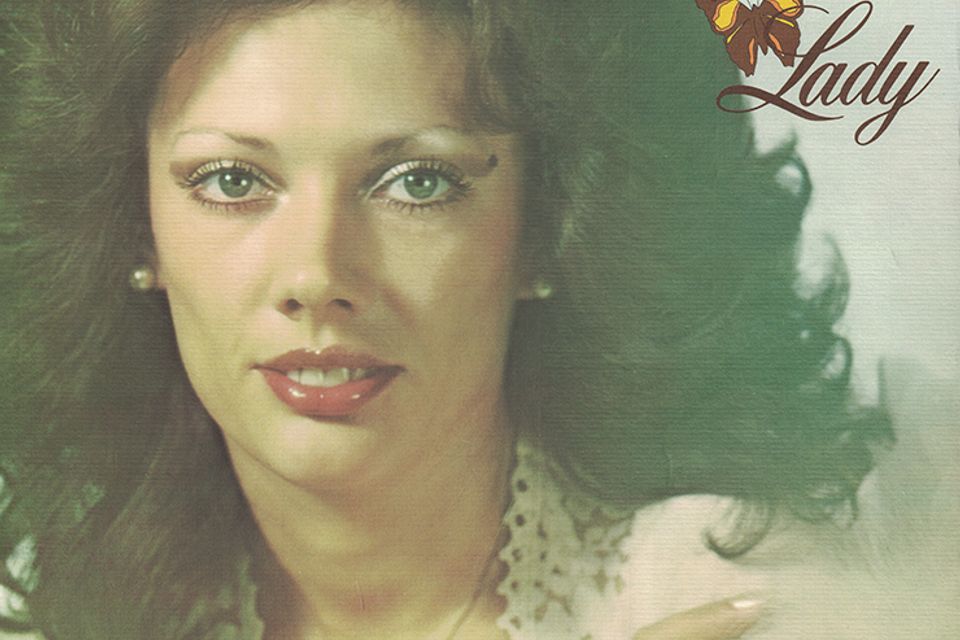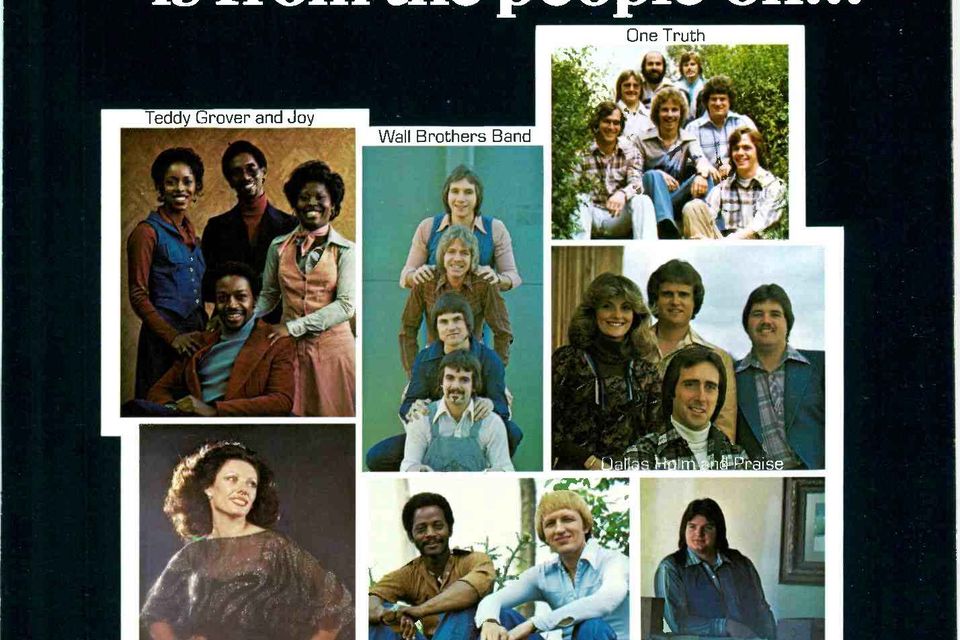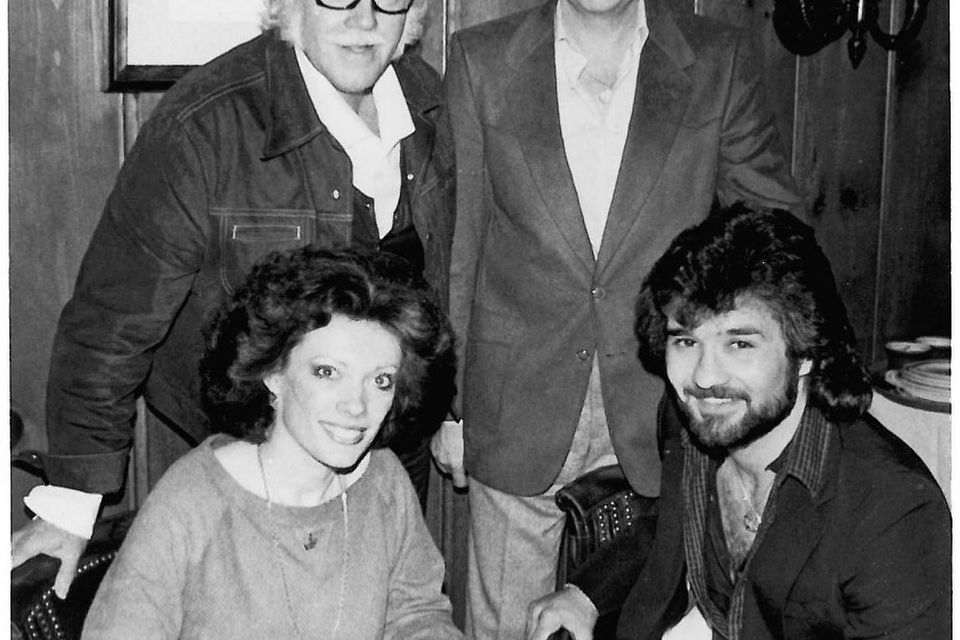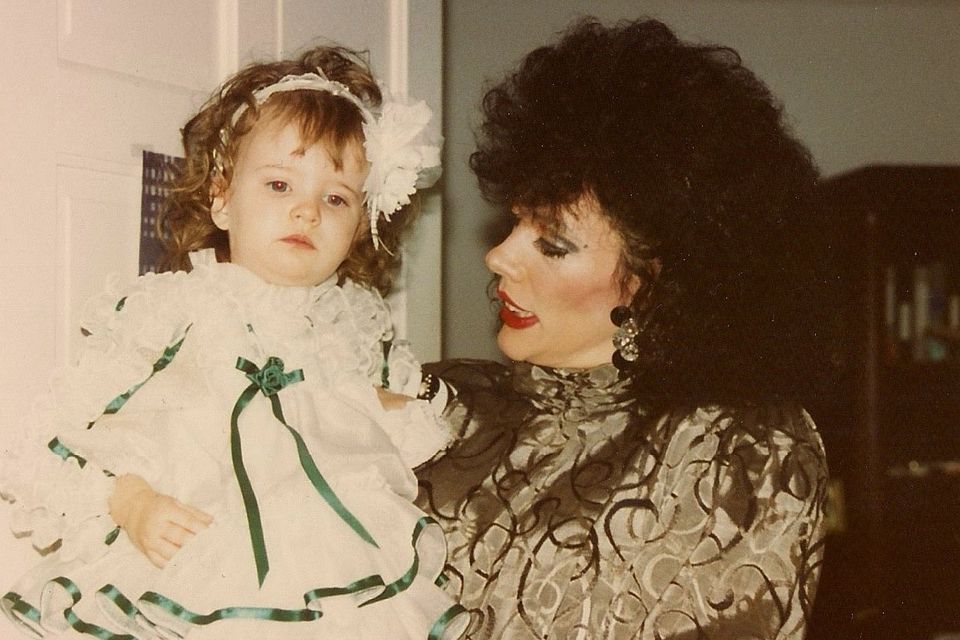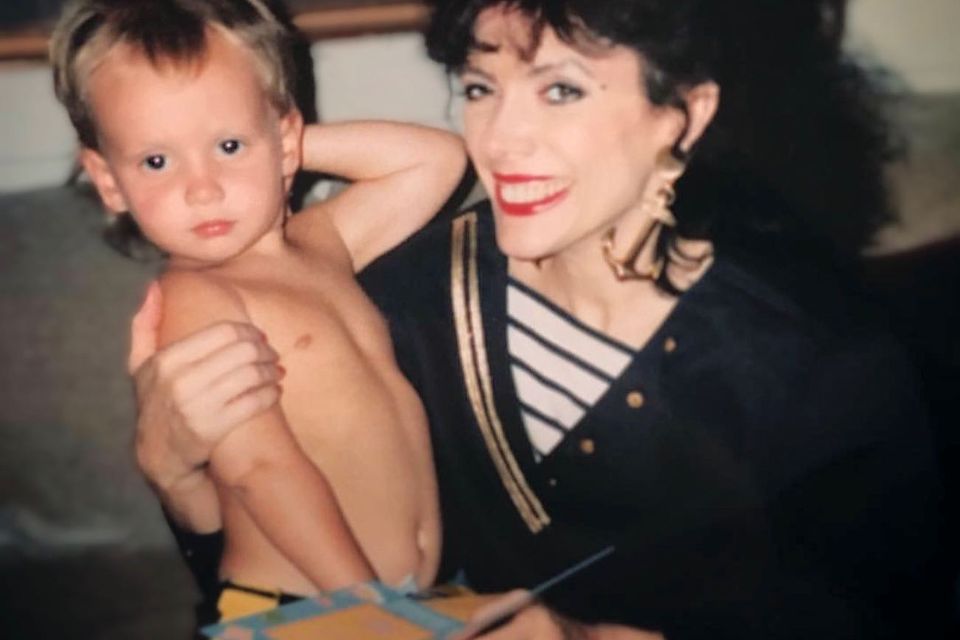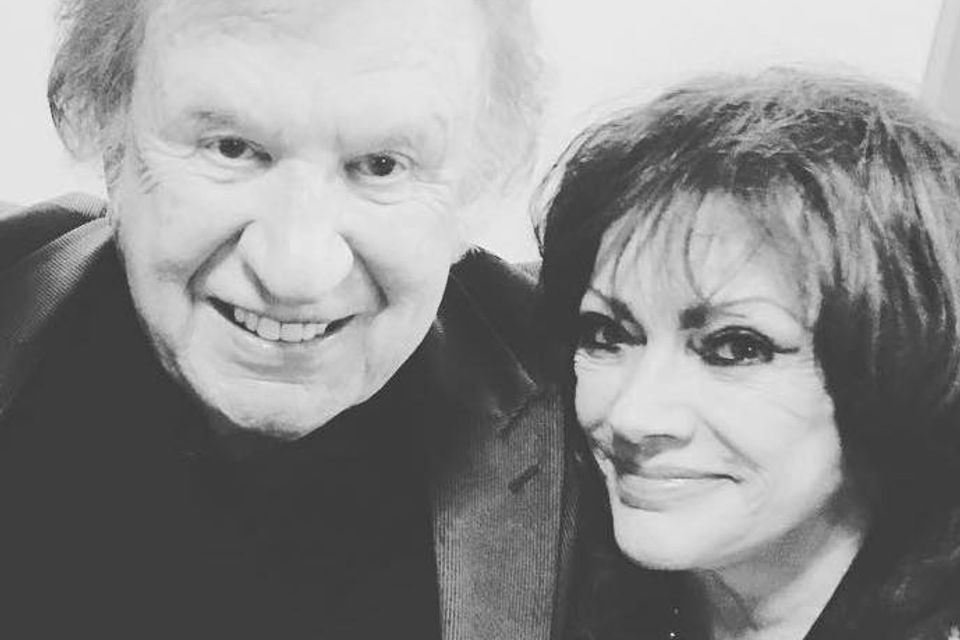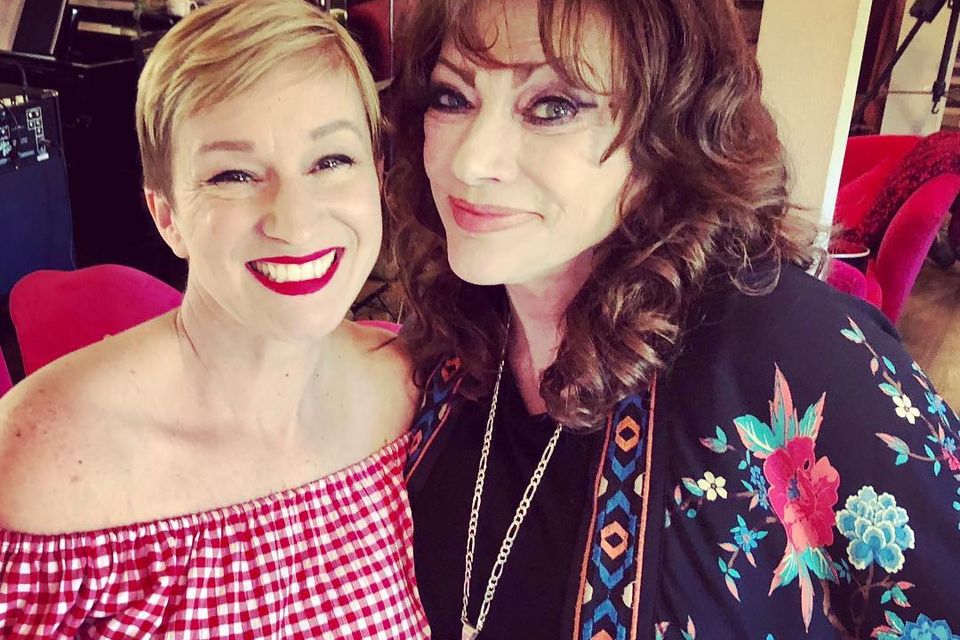
1951—Reba is born to Richard Fay “Buck” and Joyce Reba (“Dottie”) Rambo in Dawson Springs, Kentucky on October 17. Buck and Dottie are traveling evangelists, singers and musicians.

1953—Reba makes her debut on the radio, singing “When the Saints Go Marching In.” Reba travels with her parents for their weekend gigs until she begins elementary school.

1958—While her parents work day jobs and travel on the weekends as evangelists and singers with their group, The Gospel Echoes, Reba is introduced to L. Frank Baum’s series, Oz, by the local librarian in Dawson Springs. The stories speak to her deeply. She develops a connection with the characters and the story that will deeply affect and alter her life’s course.

1962—Reba develops spinal meningitis at school. Her parents are told that if she survives, she would live without cognitive functions. She emerges from a coma singing “Oh, How I Love Jesus.”
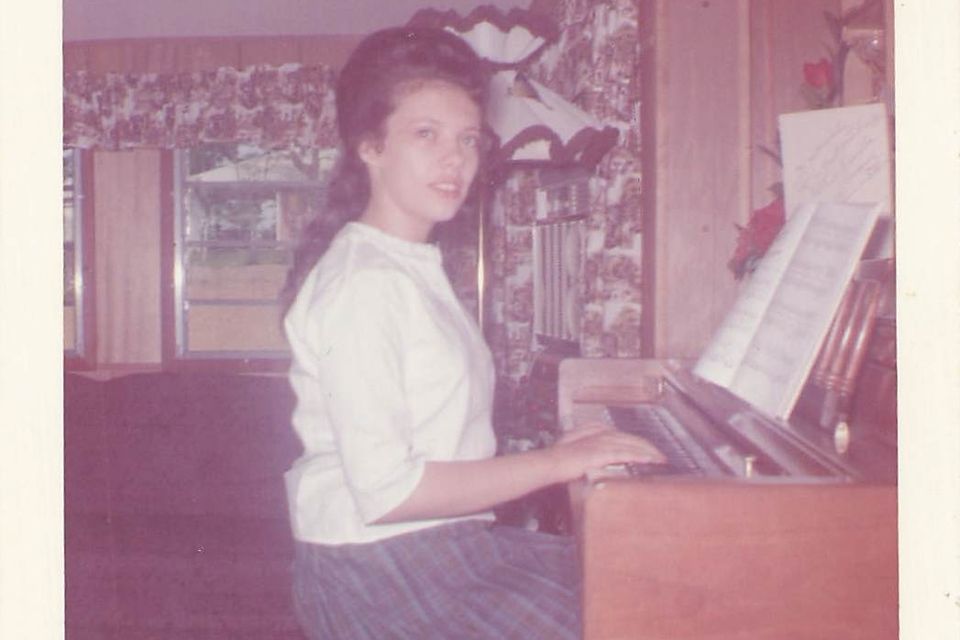
1964—Buck and Dottie need a soprano to fill a gap in their group. At thirteen, Reba reluctantly joins the group, now signed to The Benson Company’s HeartWarming Records, determined to pursue her dream of being a surgeon—not a singer!

1965—The group re-brands from The Gospel Echoes to The Singing Rambos. Reba’s first solo with the group is “Remind Me Dear Lord,” from their album Those Singing Rambos, recorded just before her fourteenth birthday. The song becomes an enduring Rambo classic.

1967—In January, The Singing Rambos perform for American soldiers stationed in Vietnam for fifteen days. The trip is a turning point for young Reba, who, along with her mother, holds the hands of and prays with wounded soldiers, many of whom would die. She writes her first song, “Keep on Marching Home” when she returns home.
The Rambos’ album, Gospel Ballads, released the same week they leave for Vietnam, earns the group their first Grammy nomination.
The Rambos’ album, Gospel Ballads, released the same week they leave for Vietnam, earns the group their first Grammy nomination.

1968—Benson Company executive Bob McKenzie convinces a sixteen-year-old Reba to record a solo album that might help her make music with her peers in mind. On the Folk Side of Gospel incites some radio announcers and churches in the south to have Reba record burning gatherings, but it introduces her to a new audience that didn’t listen to southern gospel. Billboard deems the album “extremely beautiful” praising the way she migrated “into the folk field, yet stays close to the spirit.”

1969—The Gospel Music Association forms and Reba is one of its original members. When the organization announces the first Dove Award nominations the next year, Reba is nominated in the Best Female Vocalist category, the only nominee from her generation. Other nominees include her mother, Vestal Goodman, Eva Mae LeFevre and Ann Downing.

1970—Reba takes a bold leap with her sophomore solo album, Reality, on which she writes four songs (including a co-write with Mylon LeFevre who had just released his groundbreaking album, Mylon: We Believe), tackles material by Dionne Warwick and Peter, Paul & Mary and new songs by writers like Greg Gordon and Ron Huff. Reality challenges a performative Christianity and demands one that is personalized and empathic.

1970—Reba joins Mylon LeFevre, Steve Sanders, The Downings, Connie Smith, Tom T. Hall and The Imperials on the campus of Nashville's Belmont University for a J.D. Sumner-produced television special intended to bridge the generation gap and showcase the new sounds invigorating gospel music.

1971—Reba forms Charity’s Children, a contemporary trio with future super-producer Tony Brown, Greg Gordon of The Imperials, and childhood friend, Judy Roland. They perform a set in each Rambos’ concert as they tour that year. They record a single on Impact Records and provide background vocals for contemporary albums by young southern gospel artists like Billy Blackwood and Steve Sanders.

1971—As the Jesus Movement gains traction and Jesus Music begins to emerge internationally, British pop star Cliff Richard calls Reba and The Imperials to join him for a performance in England. Reba tells The Newark Advocate that she’s contemplating leaving the family group to pursue her own path as a solo artist. She is nominated in the Female Vocalist of the Year category at the Dove Awards for the second time.

1972—Reba returns to England, this time with producer Bob McKenzie to produce her fourth solo album, Resurrection. She writes eight of the album’s twelve songs, further establishing her own unique voice and perspective as a songwriter. Upon the album’s release, she embarks on her first solo tour with a band from Oklahoma City called Sonlight, whose members were Bill Maxwell, Harlan Rogers, Fletch Wiley and Hadley Hockensmith. They perform together at what has been branded the Christian Woodstock, Explo ‘72.

1972—In October, Andraé Crouch & The Disciples, which now boasts Sonlight as members, comes to Nashville to perform at the National Quartet Convention. Andrae’s sister, Sandra, invites Reba to join the group on the road for a few dates. Reba stays for almost a year and a half while The Rambos take a hiatus from touring. She tells reporter Nadine Brewster, “When my life takes on a definite pattern, I know that the will of God will be done in me, since that has been my constant prayer to Him since leaving the family that I love so much.”

1973-1975—Reba returns to the The Rambos towards the end of 1973 and their life on the road resumes. The group ventures beyond southern gospel and migrates into the Jesus Movement, doing dates with Andraé Crouch & The Disciples and other evangelical groups with youth-oriented missions.

1973-1975—Reba marries interior designer and choir director Landy Gardner in the early summer of 1975 as The Rambos release their album These Three Are One, which includes her composition, “Just When I Need Him.” The song rises to #1 on The Singing News’ Contemporary Gospel chart.

1977—The first single from Lady, “The Land of Oohs and Ahs,” takes Christian radio by storm and Lady will become one of the best-selling albums by a female artist for the entire decade. The album is nominated for a Grammy Award and wins the second Dove Award in the Contemporary Album of the Year category. She is the first woman to win in the category. The demand for her as a solo artist increases and she steps out of The Rambos to pursue her ministry full-time.

1978—The Lady is a Child, Lady’s follow-up, is released to critical acclaim in Christian and mainstream circles. The Lady is a Child is nominated for a Grammy and a Dove Award.

1978—A young college student at Anderson University named Sandi Patty records an independent album entitled, For My Friends. She covers “Easy to Love Him” from The Lady is a Child.

1979—Reba tours with B.J. Thomas, performs at The White House for President Jimmy Carter, is the first female contemporary Christian artist to perform at Nashville’s famed performance venue, the Exit/In. and embarks on a fall tour of her own to promote her third Greentree Records release, The Prodigal...According to Reba.
The Prodigal...According to Reba is released as she goes through a divorce. Record company concerns and retailer’s outrage over the album’s front cover alters the label’s support of the album. The original cover is pulled from retail shelves and replaced with another, halting the album’s momentum.
The Prodigal...According to Reba is released as she goes through a divorce. Record company concerns and retailer’s outrage over the album’s front cover alters the label’s support of the album. The original cover is pulled from retail shelves and replaced with another, halting the album’s momentum.
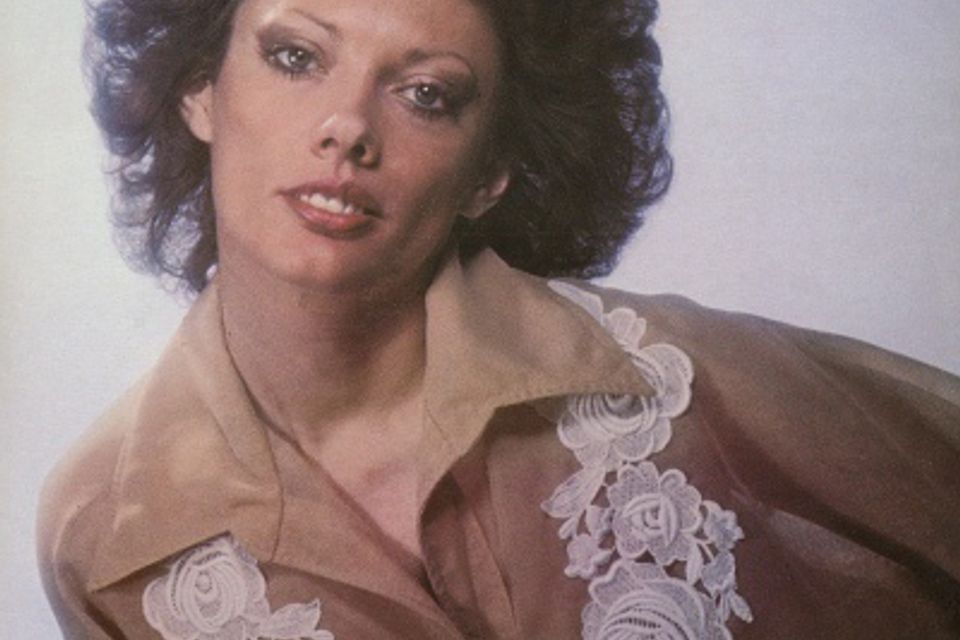
1980—As rumors swirl over her divorce, Reba signs with Light Records, one of CCM’s most diverse and edgy labels. The label’s founder and president, Ralph Carmichael, calls her “the most progressive contemporary female artist in the gospel field today. I want Reba to stay in the field and use all the talents God has given her. She can have a tremendous influence.” She releases her final album for Greentree Records, Dreamin’, in June.

1980—She and Dony McGuire co-write the musical, The Lord’s Prayer, and it is released by Light Records in the fall. The album features her Light labelmates Andraé Crouch, The Archers, and Walter and Tramaine Hawkins in addition to B.J. Thomas and Cynthia Clawson. She and Dony marry in the fall.
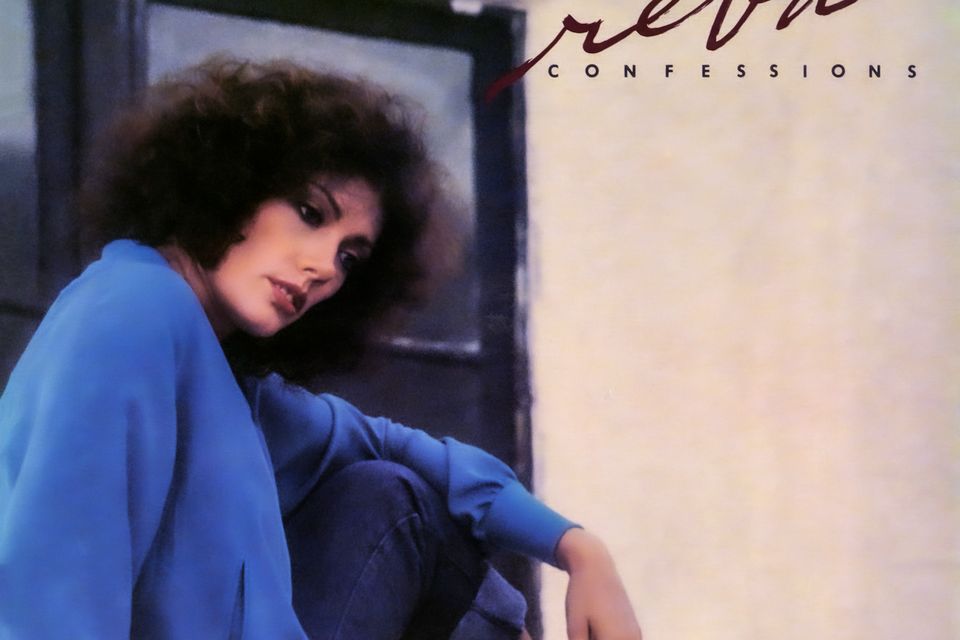
1980—In the winter, her first solo album for Light Records, Confessions, is released to critical acclaim. It includes “A Perfect Heart,” a composition that will end up in hymnals by the end of the decade.
In what is the most prolific year of her career, she also writes the title song for Debby Boone’s Grammy-nominated album With My Song, two songs for Cynthia Clawson’s Grammy-nominated album, Finest Hour and seven songs for Dave Boyer’s A Friend Like You album. She also duets with PTL Singer Bob Bailey’s on the title track of his solo debut, Looking Forward. Larnelle Harris, Jamie Owens Collins, Wayne Watson and Truth also record songs from her catalog.
In what is the most prolific year of her career, she also writes the title song for Debby Boone’s Grammy-nominated album With My Song, two songs for Cynthia Clawson’s Grammy-nominated album, Finest Hour and seven songs for Dave Boyer’s A Friend Like You album. She also duets with PTL Singer Bob Bailey’s on the title track of his solo debut, Looking Forward. Larnelle Harris, Jamie Owens Collins, Wayne Watson and Truth also record songs from her catalog.

1981—The Lord’s Prayer wins a Grammy Award for Best Gospel Performance, Contemporary or Inspirational and the ensemble cast performs a medley of the album’s compositions, receiving a rousing standing ovation.

1981—Reba appears on The Mike Douglas Entertainment Hour along with Andraé Crouch, Jessy Dixon and Dony McGuire. She performs “At Last I Found Love” from Confessions. She also co-writes four songs on The Archers MCA Records debut, Spreadin’ Like Wildfire. She and Dony also appear on the Jerry Lewis’ MDA Telethon and perform an original composition, “Who in the World Needs Your Love.”

1981—In June, Reba records her second album (to be titled Lady Live) for Light Records, produced by Dony McGuire, live at the Anaheim Convention Center for an audience of almost 10,000. She is backed by two former Sonlight musicians, Harlan Rogers and Hadley Hockensmith, Nashville session musician Larrie London on drums, and Abraham Laboriel on bass.

1982—Lady Live is released and Reba considers offers to record a mainstream album. She is a panelist at that year’s Billboard Gospel Conference. As the panel discusses when music becomes “too secular,” she responds, “I want to talk to those who haven’t heard about Jesus. But I want to talk about love too. It doesn’t hurt for me to perform love songs. That is sacred too.”
She and McGuire co-write a second musical, Messiah, Bright Morning Star, which Light releases that fall.
She and McGuire co-write a second musical, Messiah, Bright Morning Star, which Light releases that fall.

1983—Lady Live is nominated for a Grammy Award and Reba is nominated for a Dove Award in the Female Vocalist of the Year category. As she is poised to make life altering career choices that included opportunities to record a mainstream album, collaborate with Donna Summer and audition for television and Broadway roles, she takes the road less travelled. She and Dony move to Atlanta, Georgia and join Earl Paulk’s church where they are ordained into the ministry and become part of the staff at his Chapel Hill Harvester Church.

1984—Inspired by the fine arts ministry at Chapel Hill, Reba, Dony and Gary Thurman write a full-scale theatrical production entitled The Bride. A condensed version geared for commercial release, Special Moments from The Bride, is released in the summer by The Benson Company, with whom they re-sign, rebranding Reba and Dony as Rambo/McGuire. The album’s track “Wounded Soldier,” first recorded by Debby Boone the previous year on her Grammy nominated album Surrender, becomes an enduring composition, later recorded by Steve Green and Helen Baylor, among others.

1985—While the CCM world begins to gain the attention of the mainstream music industry, Reba’s focus shifts to music intended for the church, not the mainstream. She and Dony become regulars on Trinity Broadcasting Network (TBN) as songs from The Bride like “The Champion Has Come” and “Ready for Battle” become favorites amongst viewers.
Donna Summer records “Forgive Me” from The Lord’s Prayer and wins a Grammy Award for Best Inspirational Performance.
Donna Summer records “Forgive Me” from The Lord’s Prayer and wins a Grammy Award for Best Inspirational Performance.

1986—Reba gives birth to her first child, Destiny Rambo McGuire, as Plain and Simple Truth, is released as the second Rambo/McGuire project. It focuses on themes of spiritual warfare (“Under Command” and “Stormin’ the Gates of Hell”) and inclusion (“A People Who Were Not” and “We Must Reach Out”).
They perform for integrated audiences in South Africa. Reba told a reporter at the time, “What was amazing to us was that some of the so-called very religious people didn’t like us. They’d say ‘Stay out of here. You don’t know what you’re talking about.’ All we did, really, was go there and lift up Jesus. And when He’s lifted up, He does the work.”
They perform for integrated audiences in South Africa. Reba told a reporter at the time, “What was amazing to us was that some of the so-called very religious people didn’t like us. They’d say ‘Stay out of here. You don’t know what you’re talking about.’ All we did, really, was go there and lift up Jesus. And when He’s lifted up, He does the work.”

1987/1988—Rambo/McGuire releases their third album, Enlistment, which further explores themes of warfare, inclusion and unity. Reba gives birth to a son, Israel Anthem McGuire.

1990—Rambo/McGuire moves further away from the Christian music industry and forms their own RMR Records. Their first release on the label is Mission: Possible, which includes fan favorites like “Shadow of Your Wings,” “Shut Up and March” and “We Really Can Change the World.”

1993—After almost a decade of church-focused music, Rambo/McGuire records Suddenly, their first project focused on re-entering the CCM industry. RMR Records inks a distribution deal with Ocean Records, distributed by Word Records. While Christian radio didn’t pick the album up, “Come and Go with Me” and “He Can’t Keep His Eyes Off Me” become favorites as they continue to appear regularly on TBN.

1994-2000—Reba and Dony shift their focus and begin to evangelize, conducting revivals around the country. They begin a mentorship program, cultivating young people in various forms of ministry.

2001—Reba and Dony launch a church in Nashville, The River at Music City, which they pastor until 2018. The Rambos are inducted into the Gospel Music Hall of Fame by the Gospel Music Association. Reba and Judy Gossett co-author a book, Follow the Yellow Brick Road, which is published by Destiny Image Publishers.

2008—Reba’s mother Dottie tragically dies in a bus accident while on tour at the age of seventy-four. The New York Times described her as “a singer and prolific songwriter who was one of the most successful women to write songs in gospel music.”

2012—Rambo/McGuire, which now expands to include Reba and Dony’s daughter, Destiny, wins a Dove Award for Grassroots Rambos, an album of Dottie Rambo compositions recorded in her memory.

2013-2018—Reba co-writes a number of songs that become a part of the Gaither Homecoming catalog including “In Good Hands,” (led by Angela Primm), “You Brought Us Out” (led by Kelly Bowling, Joy Gardner and Reba’s daughter Destiny) and “Sow Mercy,” recorded by the Gaither Vocal Band. She also co-wrote nine songs on Mark Lowry’s Dove Award winning release, What’s Not to Love, and compositions for Shirley Caesar, Michael English, The Nelons, Karen Peck & New River, The Freemans, Solveig Leithaug, The Lore Family, David & Nicole Binion and more.

In 2016, Reba’s father, Buck, dies at the age of eighty-four. The Williamson Herald wrote, “Buck Rambo touched the lives of everyone he met in and out of the music field. His passion and zeal for God and the ministry led him to mentor many artists with his wisdom garnered from the years he spent in every facet of the industry from singing to publishing and everything in between.”

2019—Reba and Dony divorce and Reba re-envisions her life and ministry. Her album Lady is digitally reissued, available for the first time since the early 1980s. It reaches the #1 position on Amazon Music’s Christian/Gospel chart and #3 on iTunes’s Christian chart.

2020-2023—As the pandemic keeps people at home and limits in-person performances, Reba’s albums Confessions and Lady Live are digitally re-released by MNRK Music Group. She does online interviews with Daywind Music’s Dusty Wells, singer/songwriter Crystal Lewis and gospel music historian Tim Dillinger upon the album’s re-releases, discussing her history as one of CCM’s pioneers.

2024—Reba's 1980 album, Dreamin’, is digitally re-released by Sony’s Legacy Recordings as Reba forms a new ministry umbrella, Reba Rambo Ministries, celebrating 60 years of ministry. She divides her time between Florida and Tennessee where she continues to write with artists like Levi and Jacob Mills of The Sound, Clint Brown of Southbound, Sue C. Smith, Jason Clark of the Nelons, Joseph Habedank and others. She is putting the finishing touches on Rambo Women, an album written and recorded in collaboration with her daughter, Destiny Rambo Khouri, and is working on her first solo album since 1982.

